Araku Valley, a serene hill station in Andhra Pradesh, rests gently on the Eastern Ghats. Often called the “Ooty of Andhra,” this destination combines natural charm with tribal traditions, making it an experience that feels both refreshing and deeply cultural. With pleasant weather, verdant landscapes, and attractions ranging from caves to gardens, Araku is perfect for families, couples, nature lovers, and adventure seekers. A journey here is more than sightseeing; it is about rediscovering the joy of slow travel.
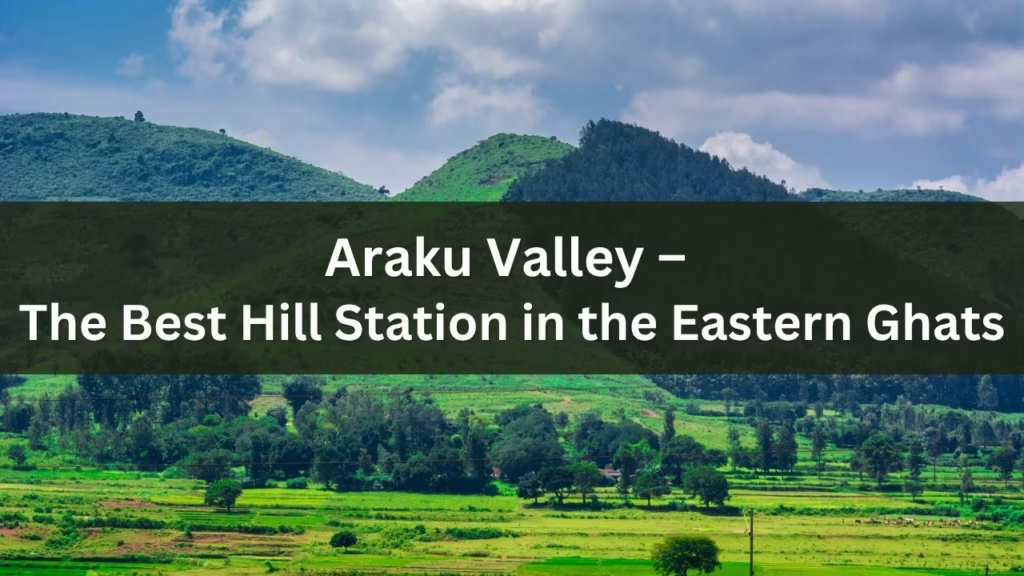
Places to Visit in Araku Valley
Borra Caves

Carved millions of years ago, Borra Caves are a geological wonder filled with stalactites and stalagmites that create natural sculptures under dramatic lighting. The caves were discovered in the 1800s by a British geologist, and local legends add a spiritual layer to their allure. It is one of the best places to visit in Araku.
- Timings: 10:00 AM – 5:00 PM
- Entry Fee: Around ₹40 for adults (may vary)
- Duration: 1–2 hours
- Photography Tip: Capture the illuminated rock formations at mid-day when natural light filters in.
- Insider Tip: Hire a local guide. They narrate fascinating myths about the caves that you won’t find on signboards.
Padmapuram Gardens
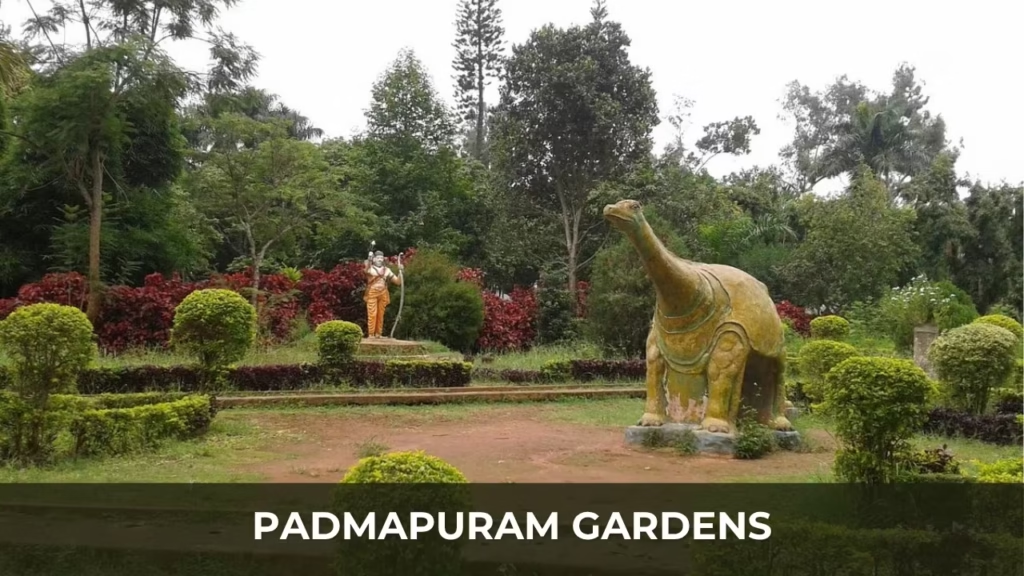
Spread over acres, Padmapuram Gardens is a botanical retreat known for rare species of flowering plants and tree-top huts available for overnight stays. It is one of the famous tourist spots in Araku with walking trails, toy train rides, and rose gardens, making it ideal for a relaxed half-day visit.
- Timings: 8:00 AM – 6:00 PM
- Entry Fee: Around ₹20
- Duration: 1–2 hours
- Best Spot: The hanging huts give a bird’s-eye view of the gardens.
- Insider Tip: Visit early morning to enjoy dew-fresh blooms before crowds arrive.
Katiki Waterfalls
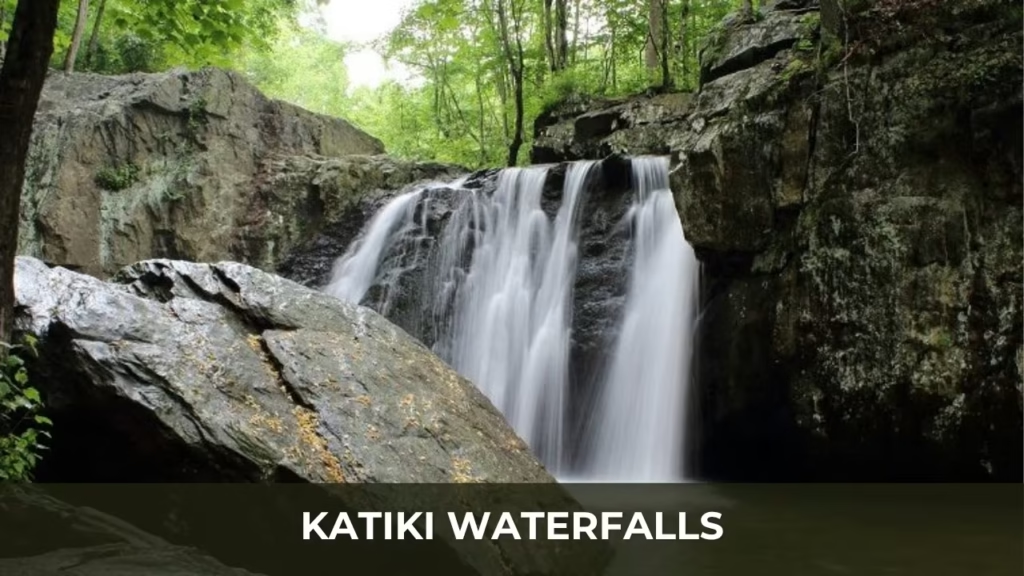
Fed by the Gosthani River, Katiki Waterfalls cascade from a height of about 50 feet, surrounded by dense forest. The journey itself is adventurous, with a jeep ride followed by a short trek.
- Timings: Daylight hours only
- Entry Fee: Jeep rides cost around ₹200–₹300 per person
- Duration: 2–3 hours including travel
- Photography Tip: Capture long-exposure shots to highlight the silken flow of water.
- Insider Tip: Carry water shoes; the rocks can be slippery near the falls.
Tribal Museum
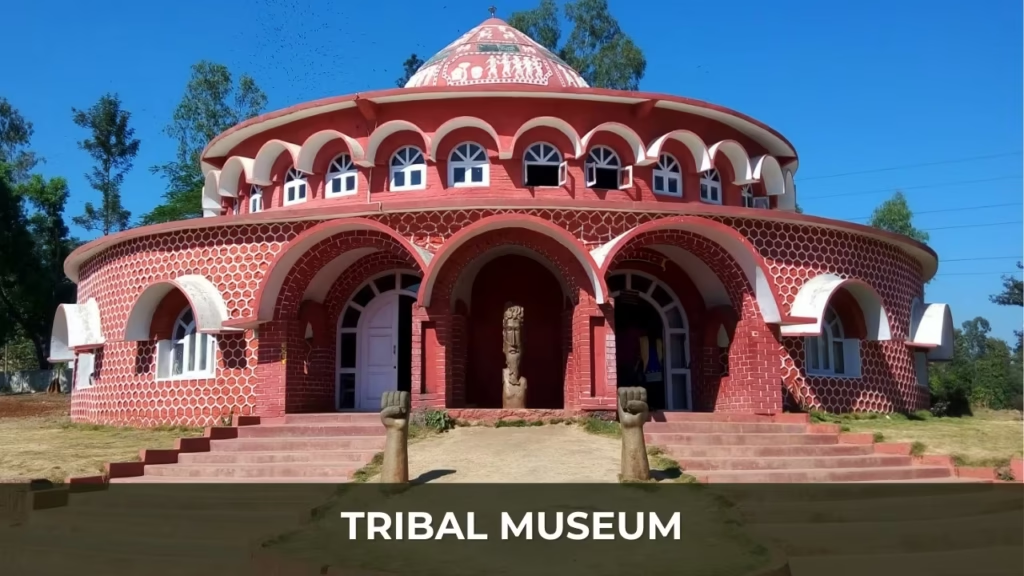
The Araku Tribal Museum showcases the rich heritage of 19 indigenous tribes of the region. From bamboo handicrafts to traditional costumes, it provides a cultural immersion into lives shaped by forests and hills.
- Timings: 10:00 AM – 6:00 PM
- Entry Fee: Around ₹40
- Duration: 1–1.5 hours
- Highlight: The tribal dance exhibits and local art section.
- Insider Tip: Buy handicrafts from the museum shop—authentic and reasonably priced.
Ananthagiri Hills
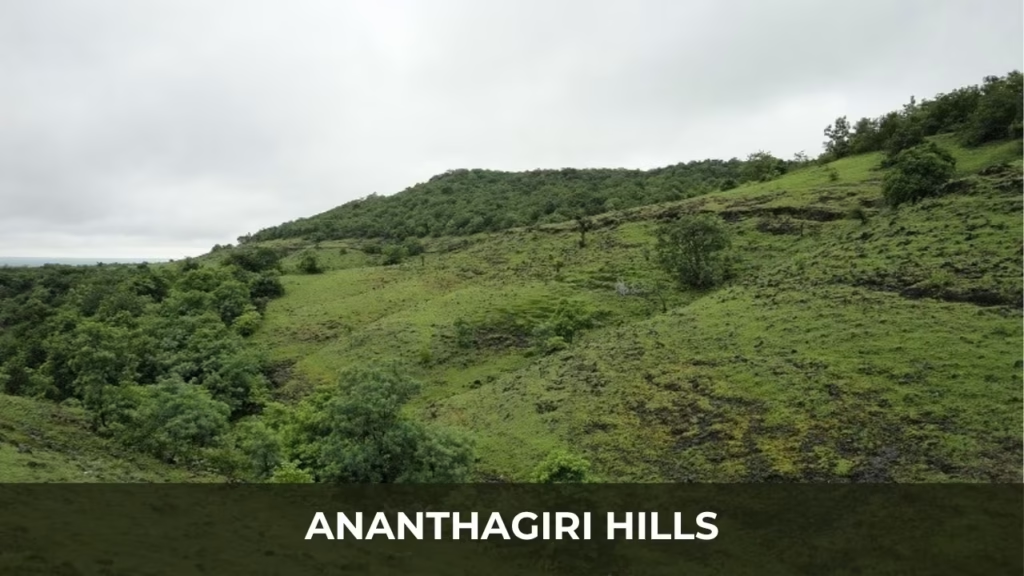
On the way to Araku lies Ananthagiri Hills, known for thick coffee plantations, misty mornings, and trekking trails. It’s less crowded than Araku, making it a peaceful stop.
- Best Time: Sunrise or sunset for magical views
- Duration: Half a day
- Insider Tip: Don’t miss the viewpoint near the coffee estates—it’s a photographer’s delight.
Coffee Plantations and Coffee Museum

Araku is synonymous with coffee. The Coffee Museum here explains the history of Araku coffee while nearby plantations let you walk through aromatic estates.
- Timings: 9:00 AM – 8:00 PM
- Entry Fee: Free (for museum, small fee at plantations)
- Duration: 1–2 hours
- Highlight: Try a cup of Araku Valley organic coffee at the café—it’s globally recognized.
- Insider Tip: Purchase packaged coffee beans as souvenirs; they are fresh and farm-sourced.
Chaparai Water Cascade (Dumbriguda Falls)
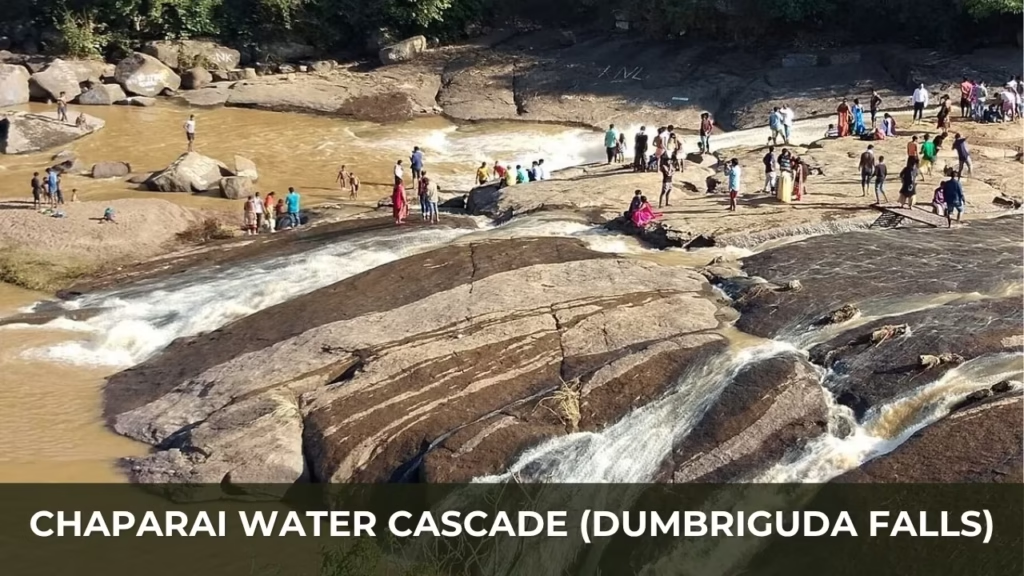
Locals love Chaparai Water Cascade for picnics. The shallow stream flows gently over flat rock surfaces, making it perfect for wading and relaxing.
- Timings: Daylight hours
- Duration: 1–2 hours
- Safety Tip: The rocks can be slippery during monsoons; tread carefully.
- Insider Tip: Carry snacks but dispose of waste responsibly—this is a fragile spot.
Galikonda Viewpoint
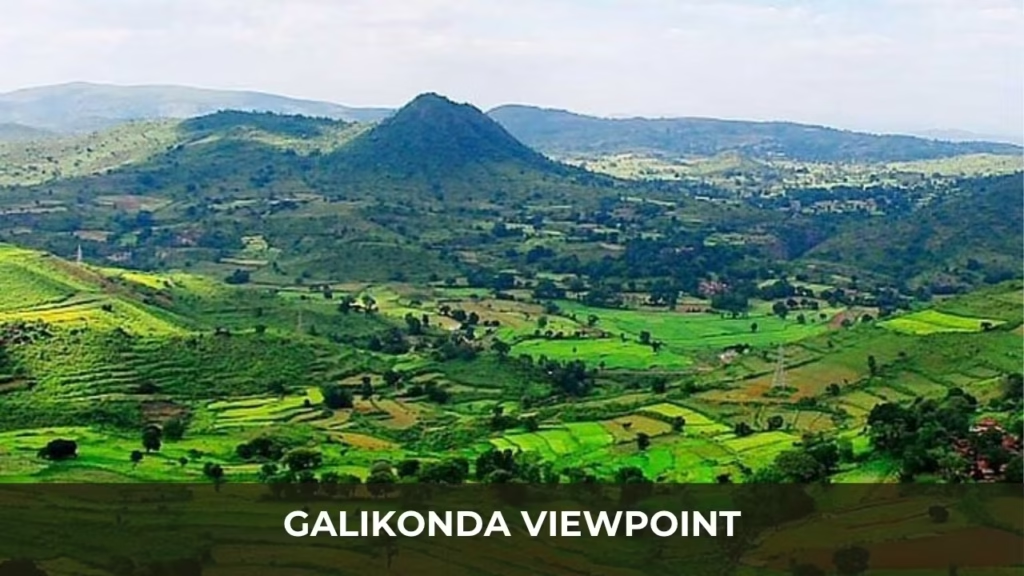
At over 4,300 feet, Galikonda Viewpoint is one of the highest spots in the Eastern Ghats. The panorama of valleys, hills, and winding railway tracks is breathtaking.
- Best Time: Early morning or late afternoon for soft golden light
- Duration: 30–45 minutes
- Photography Tip: Use a wide-angle lens to capture the vastness of the valley.
- Insider Tip: Carry a light jacket—it can get windy even in summer.
Matsyagundam (Fish Pool)
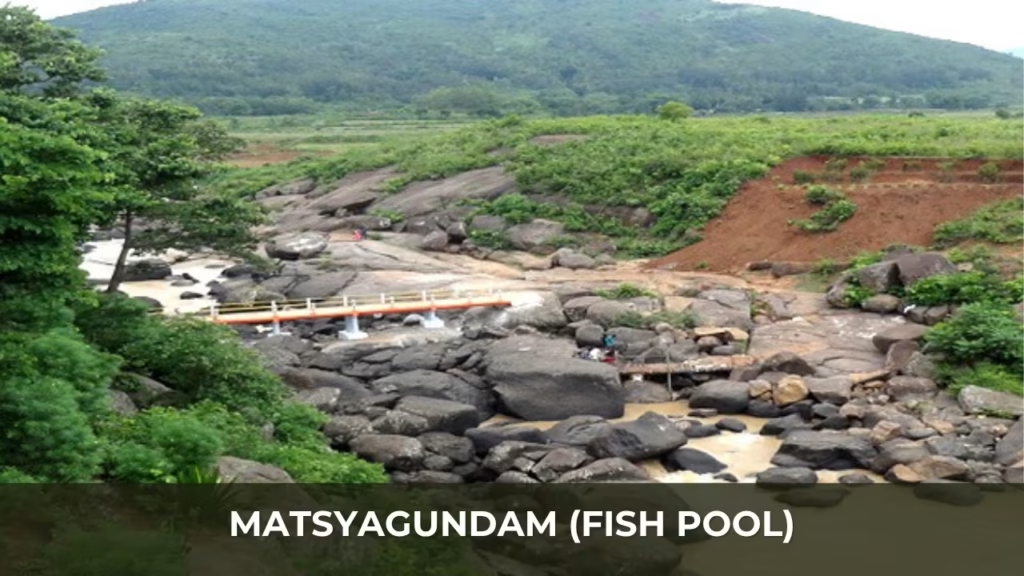
A sacred pool on the Machkund River, Matsyagundam is home to countless fish considered divine by locals. There’s also an ancient temple nearby.
- Timings: 7:00 AM – 6:00 PM
- Duration: 1 hour
- Insider Tip: Carry puffed rice to feed the fish—it’s a delightful experience.
Tyda Nature Camp
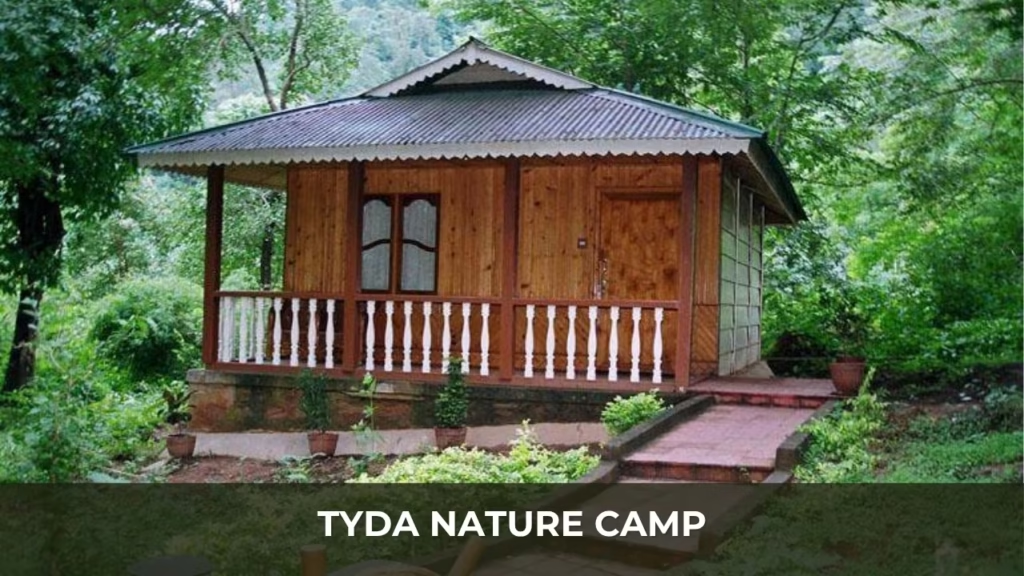
Run by Andhra Pradesh Tourism, Tyda Nature Camp is an eco-tourism site offering rock climbing, birdwatching, and overnight stays in log huts.
- Activities: Trekking, camping, wildlife spotting
- Duration: 1–2 days
- Insider Tip: Book in advance during peak season; campsites fill quickly.
Araku Tribal Villages
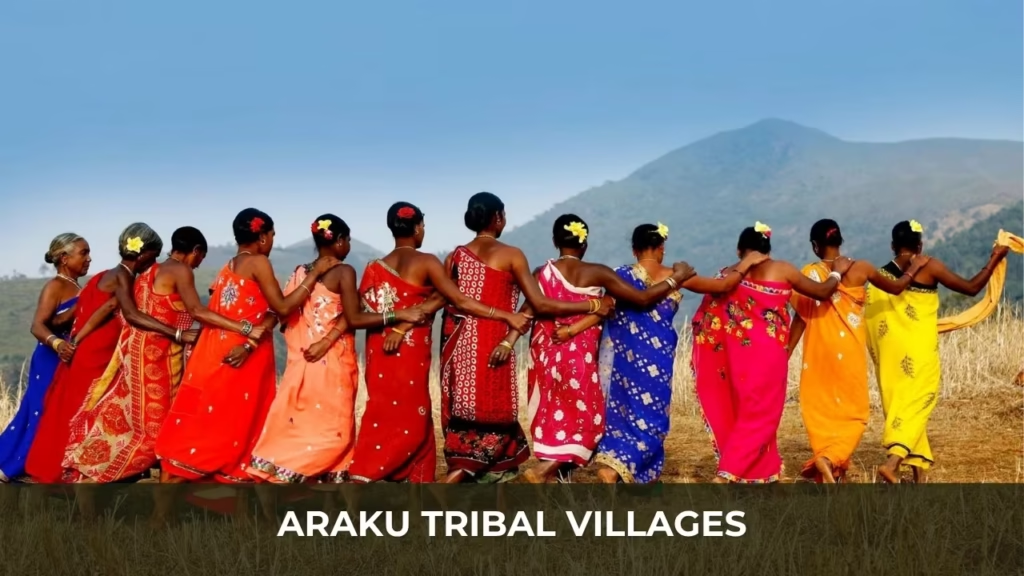
For an authentic cultural encounter, visiting a nearby tribal village is a rewarding experience. Visitors can interact with locals, observe traditional crafts, and sometimes witness Dheemsa dance performances.
- Duration: Half a day
- Insider Tip: Go with a local guide who can translate and explain customs respectfully
Ranajilleda Waterfalls (Offbeat Gem)
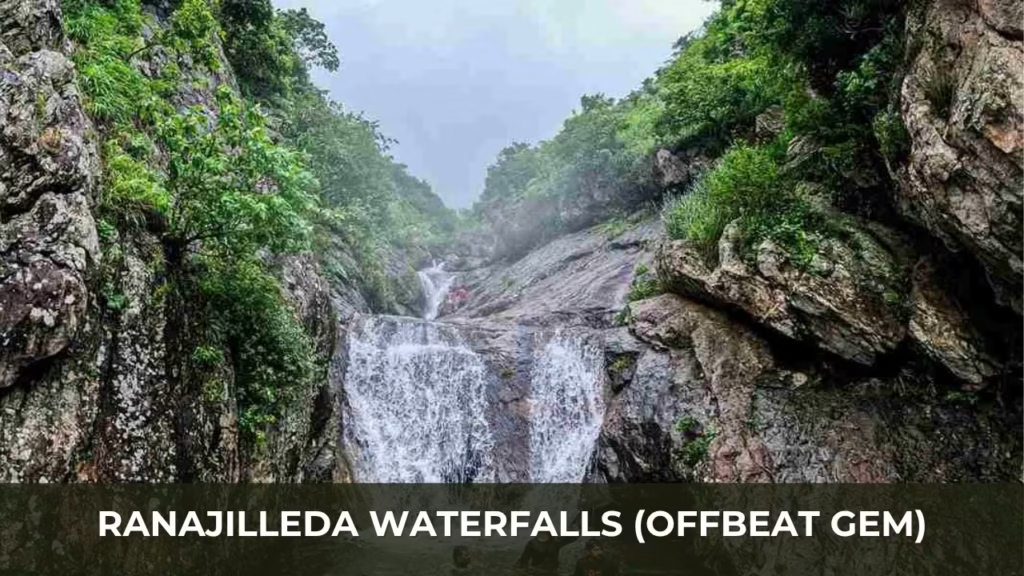
Less crowded than Katiki, Ranajilleda Waterfalls require a short trek through forests. The falls drop from a height of nearly 60 feet, and the solitude here is priceless.
- Duration: 2–3 hours
- Insider Tip: Carry water and snacks—there are no shops nearby.
Things to Do in Araku Valley
Araku Valley is more than a scenic hill station, it is an experience layered with culture, adventure, flavors, and natural beauty. Whether you’re a laid-back traveler who enjoys coffee and slow walks, or someone who seeks treks, tribal dances, and campfires, Araku has something for every kind of visitor. Here’s a closer look at the most rewarding things to do in Araku Valley:
Take the Scenic Araku Valley Train Ride
The train journey from Visakhapatnam to Araku Valley is an attraction in itself and is often considered one of the most scenic rail routes in South India. The train winds its way through tunnels, bridges, and thick forests, offering panoramic views of the Eastern Ghats.
- Why it’s worth it: The route has over 40 tunnels and breathtaking views at every turn. It’s one of the rare train rides in India where the journey feels as magical as the destination.
- Best Time: Morning departures from Visakhapatnam offer the clearest views.
- Duration: Around 3–4 hours.
- Insider Tip: Book tickets well in advance as they sell out quickly, especially during weekends and winter. Window seats are the most prized.
Taste Bamboo Chicken (Bongulo Chicken)
Food lovers should not miss the famous Bamboo Chicken, a tribal delicacy of Araku. Marinated chicken is stuffed inside hollow bamboo stems and slow-cooked over an open flame. The bamboo infuses the meat with a smoky aroma and earthy flavor that can’t be replicated elsewhere.
- Where to try: Roadside stalls near waterfalls, tribal villages, and small eateries in Araku town.
- Why it’s special: This dish isn’t just about taste, it reflects the tribal tradition of cooking with natural resources.
Go Trekking in the Eastern Ghats
Araku Valley offers several trekking opportunities for those who love nature. Trails around Ananthagiri Hills, Ranajilleda Waterfalls, and Tyda are especially popular. Trekkers can expect to walk through coffee plantations, bamboo groves, and streams, often spotting exotic birds along the way.
- Best For: Nature enthusiasts and photographers.
- Difficulty: Easy to moderate, depending on the trail.
- When to Go: Early morning for cool weather and better chances of spotting wildlife.
- Insider Tip: Carry sufficient water, as there are no shops on remote trails. A local guide can enrich the experience by pointing out medicinal plants and bird species.
Witness Dheemsa Dance Performances
The Dheemsa dance is an age-old folk tradition performed by tribal communities in Araku. Dancers form circles, wearing colorful attire and moving rhythmically to the beat of drums and folk songs. It’s a powerful expression of unity, joy, and cultural identity.
- Where to Watch: Cultural centers, festivals, or occasionally at the Tribal Museum.
- Best Time: During local festivals like Itikala Panduga or when arranged for tourists in winter.
- Why it’s worth it: It’s one of the few chances to connect with Araku’s tribal heritage in an authentic way.
Stay in Tree-Top Huts at Padmapuram Gardens
If you’ve ever dreamed of sleeping amidst treetops, Araku offers this experience at Padmapuram Gardens. The tree huts are perched above the gardens, giving a panoramic view of greenery and birds at dawn.
- Cost: Moderate to slightly premium compared to hotels.
- Experience: The stay is rustic yet comfortable, with basic amenities.
- Why it’s special: Falling asleep to the sound of rustling leaves and waking up to bird calls creates a rare connection with nature.
Join a Coffee Tasting Session
Araku Valley is globally known for its organic coffee, cultivated by tribal cooperatives. Coffee lovers can join tasting sessions where experts explain the growing, harvesting, and roasting process. You’ll sample varieties of brews, from light-bodied to rich and robust.
- Where: Coffee Museum in Araku town or directly at plantations.
- Cost: Around ₹100–₹200 for guided tastings.
- Souvenir Tip: Pick up packaged beans or ground coffee, it makes for a thoughtful gift and supports local farmers.
Go Camping at Tyda Nature Camp
Adventure seekers should head to Tyda Nature Camp, a government-run eco-tourism site. You can spend a night in log huts, join guided treks, or learn basic rock climbing. Evenings here are magical, with bonfires under star-filled skies.
- Activities: Birdwatching, camping, nature walks.
- Best Time: October to March, when the weather is pleasant.
- Insider Tip: Book online before your trip, especially during peak winter.
Explore Local Tribal Villages
A visit to Araku isn’t complete without stepping into a tribal village. These visits allow you to interact with communities that have preserved traditions for centuries. You’ll see bamboo handicrafts, handmade jewelry, and traditional cooking methods.
- Why Visit: To experience everyday life, far from city influences.
- Duration: Half a day.
- Cultural Tip: Be respectful while taking photos—always ask for permission. Buying a small craft item is a good way to support the local economy.
Shop for Tribal Handicrafts
The markets of Araku Valley sell bamboo crafts, handwoven clothes, wooden toys, and tribal jewelry. These items carry the essence of the valley’s culture.
- Where to Shop: Tribal Museum store, weekly markets, and roadside stalls.
- Best Buys: Bamboo baskets, coffee beans, and handmade ornaments.
- Insider Tip: Prices are usually fair, but buying directly from artisans gives them the most benefit.
Capture Araku Through Your Lens
Photography enthusiasts will find Araku irresistible. The landscapes shift from misty hills and waterfalls to sunlit coffee estates and tribal villages full of color.
- Best Spots: Galikonda Viewpoint for sunrise, Katiki Falls for long-exposure shots, and coffee plantations at dusk.
- Tip: Carry a tripod if you want to capture waterfalls or night skies.
Picnic by Chaparai Water Cascade
If you’re traveling with family, the Chaparai Water Cascade is an easy-going activity. The shallow stream flowing over smooth rocks creates a safe environment for wading and playing.
- Best Time: Post-monsoon (October–December) when the flow is steady but safe.
- Duration: 2–3 hours.
- Tip: Carry snacks and a mat, but keep the spot clean—locals are deeply attached to this site.
Indulge in Simple Local Meals
Besides bamboo chicken, Araku’s local food scene is worth exploring. Try millet-based dishes, tamarind rice, and tribal chutneys. Meals are simple but hearty, often flavored with foraged greens and spices grown in nearby forests.
- Where to Eat: Small eateries near the bus stand, tribal-run stalls near attractions, or homestays.
- Insider Tip: Ask for seasonal specials—tribal kitchens often prepare dishes based on what’s freshly available in the forest.
Where is Araku Valley Located?
Araku Valley is situated in the Eastern Ghats of Andhra Pradesh, about 115 kilometers from Visakhapatnam (Vizag). Located at an elevation of nearly 910 meters above sea level, the valley stretches close to the Odisha border and is surrounded by thick forests, coffee plantations, and tribal hamlets. Its location makes it both easily accessible from the coast and a refreshing getaway into the mountains.
Best Time to Visit Araku Valley
The climate in Araku Valley is pleasant throughout the year, but the best season to visit Araku Valley is from October to March. During this period, the temperature remains cool and comfortable, making sightseeing and outdoor activities enjoyable.
- Winter (November – February): The best season with cool temperatures (14–22°C). Perfect for sightseeing, treks, and cultural experiences. Peak tourist season, so book accommodation early.
- Summer (March – May): Warm but bearable (22–30°C). Less crowded, ideal for budget travelers. Carry light cotton clothes.
- Monsoon (June – September): Heavy rainfall transforms the valley into a green paradise with roaring waterfalls. Great for nature lovers, but travel can be tricky due to slippery roads.
- Post-Monsoon (October): A refreshing time with clear skies and moderate temperatures. Waterfalls are still lively.
What to Pack:
- Winter: Jackets, warm layers, comfortable walking shoes
- Summer: Light cotton wear, sunscreen, hats
- Monsoon: Raincoats, waterproof footwear, mosquito repellent
How to Reach Araku Valley?
By Air
- Nearest Airport: Visakhapatnam International Airport. Vizag to Araku Valley distance is about 115 km.
- Connectivity: Direct flights from Hyderabad, Chennai, Bengaluru, Delhi, and Kolkata.
- From Airport to Araku: Taxis (₹3,000–₹3,500), buses, or self-drive rentals. Travel time: ~3 hours.
By Train
- Nearest Station: Araku Railway Station (well connected to Visakhapatnam).
- The Visakhapatnam–Araku passenger train is a highlight with its scenic journey through tunnels and bridges.
- Distance: ~115 km from Visakhapatnam.
By Road
- From Visakhapatnam: 115 km via NH 516E (~3 hours by car).
- From Hyderabad: 650 km (~12 hours by car).
- APSRTC and private buses operate from major Andhra cities. Roads are generally good but winding in hill stretches.
Local Transportation
- Options: Auto-rickshaws, taxis, and local buses are common.
- Rental Bikes/Scooters: Available in Visakhapatnam for those who enjoy self-exploration.
- Tip: Fix fares in advance with autos and taxis, as meters are rarely used.
